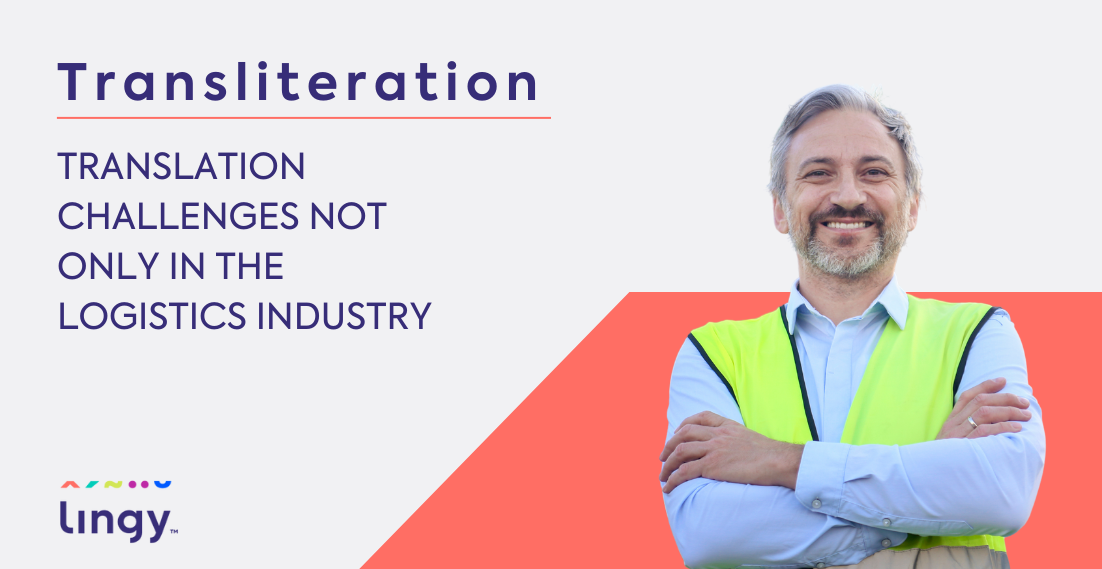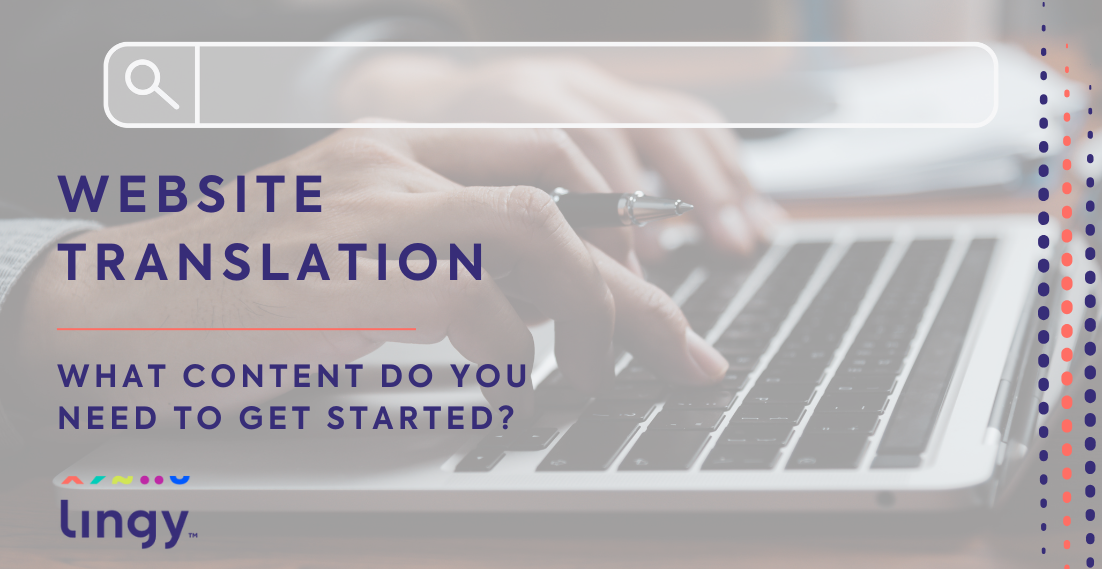Transliteration – translation challenges not only in the logistics industry

In an era of globalisation and the dynamic growth of e-commerce and the manufacturing industries, accurate translations play a vital role in ensuring smooth international communication. This is particularly evident in the logistics industry, where the accuracy of address data and transport documentation has a direct impact on operational efficiency, in other words, the fluidity of deliveries.
One important aspect of translation for the TSL industry is the transliteration, i.e. the process of translating characters from one writing system (alphabet) onto another. For companies, this poses a challenge in which free online translators prove inadequate. A mistake made due to a incorrect translation or rather transliteration can lead to serious operational and legal consequences, as we discuss below.
Transliteration and its importance in translation
Transliteration is the process of converting diacritical marks from one alphabet into the corresponding characters in another alphabet, while preserving the pronunciation of the original word. It focuses on the phonetic rendering of proper names, such as first names, surnames or addresses.
In the context of online translations and documentation for international transport, transliteration plays an important role in ensuring consistent and error-free data. Incorrect transliteration can lead to misunderstandings, delayed deliveries and even loss of customers.
Is transliteration another word for transcription?
No. People who use these two terms interchangeably are making a mistake. Transcription is the conversion of spoken words from an audio or video recording into a handwritten or digital text. Transliteration, on the other hand, is related to diacritical marks and the letters of a particular script.
Challenges in translation for the transport and logistics industries
The logistics and transport industries operate globally, necessitating the processing of documents in different languages and writing systems. What challenges are involved?
- Diversity of writing systems – Logistics staff often deal with documents in languages using different scripts, such as Cyrillic alphabet, Arabic abjad or Chinese ideograms. Transliterating these characters into the Latin alphabet requires precision and proficiency in linguistic standards.
- Lack of uniform transliteration standards – there are many transliteration systems and the lack of uniformity can lead to inconsistencies in documentation. An inconsistent record can cause confusion during the identification of people or places.
- Process automation – in the digital age, many companies are using online automatic translation and transliteration systems. Below, we write about solutions we offer our clients.
Address translation – a challenge in the logistics industry
The accuracy of address translations is paramount to the efficiency of logistics operations involved in delivering goods to customers and trading partners. Incorrect transliteration of an address can lead to:
- inability to verify the data against the US and UK terrorist financing (CTF) and anti-money laundering (AML) exclusion lists;
- delivery delays – incorrectly translated addresses can result in misdirected shipments, which generate additional costs and delays;
- legal problems – in some jurisdictions, incorrect address data can lead to customs or tax violations;
- loss of customers – repeated delivery errors can negatively affect a company’s reputation, leading to a drop in conversions and loss of customers.
The role of online translation agencies
In view of the challenges mentioned above, the use of translation agencies becomes indispensable. Services – such as lingy.uk – provide the highest quality of service. Our experienced translators are familiar with transliteration standards. In this way, they can ensure consistent and correct transliteration in documents. They use proven tools and procedures. They use specialised software and quality control procedures (we offer translations with verification) to minimise the risk of errors. They ensure the confidentiality and security of data and apply strict security procedures to protect customer data.
Language models as process support for the TSL industry
For our client Kuehne+Nagel (an international shipping company), we have developed a personalised language model that supports multilingual databases containing millions of pages. The tool performs its desired operations – it detects the language and performs the transliteration.
The transliteration of diacritical marks is based on a compiled list of diacritical marks in all Latin languages from a defined list of languages and their transliteration into English. Some examples are:
Czech
Diacritical marks: á, č, ï, é, ě, í, ň, ó, ř, š, ť, ú, ů, ý, ž
When translated into English: a, c, d, e, e, i o, r, s, t, u, y, z
German
Diacritical marks: ä, ö, ü, ß
When translated into English: ae, oe,eu, ss
French
Diacritical marks : ç, à, â, î, ï, ô, é, è, ê, ë, û, ÿ
When translated into English: s, a, i, i, o, e, e, e, u, y
Spanish
Diacritical marks: ñ, á, é, í
When translated into English: n, a, e, i
You can read more about our collaboration on the blog:
Transliteration of characters – take care of the notation when doing international business
Transliteration plays an important role in ensuring efficiency in the logistics industry, which is closely linked to manufacturing and e-commerce. Incorrect transliteration can lead to serious operational and legal consequences. That is why it is worth entrusting translations to specialists who have the experience and tools to overcome language challenges.
Please do not hesitate to contact us – we will discuss the terms and conditions of a possible collaboration for online translation with transliteration.
Let’s talk about transliteration
A mistake that costs lives – a comprehensive guide to medical translation pitfalls
Medical translation errors can be fatal. Discover the most common pitfalls, from “false friends” to unit conversions, and learn how professional translation ensures safety.
Why website localization is the key to success in foreign markets?
Find out why website localization (and not just translation) is crucial for B2B success in foreign markets. Discover 5 benefits for your business.
Website translation – what content do you need to get started?
Let’s see how to approach website translation strategically and decide which content is essential at the start.
Christmas Sale and Google Ads Campaign – How Marketing Translation Boosts Your Holiday Advertising
The Christmas season is a peak period for every marketing team and marketer. From e-commerce stores to service providers, everyone competes for the attention of shoppers ready to spend. A well-planned Google Ads campaign can make or break your holiday sales. But even the most creative advertising copy will fall flat if your message isn’t […]



